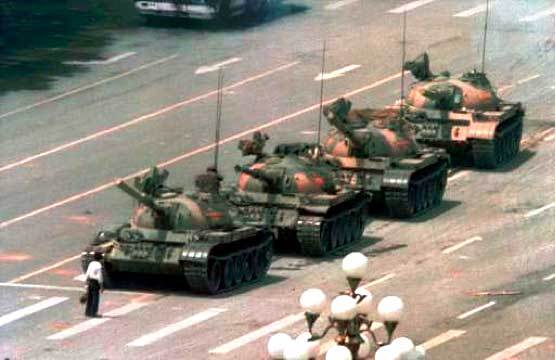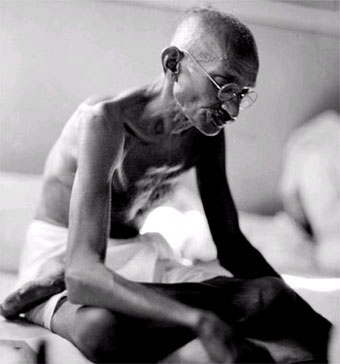
“Life shrinks or expands in proportion to one’s courage.”
-Anais Nin
Courage is a virtue that philosophers have been trying to define for millennia. In the Laches, Socrates engages in a heated dialogue with two Athenian generals about the definition of courage. But like most of Socrates’ dialogues, we learn what the virtue of courage is not, as opposed to what it is. Aristotle, in his Eudemian Ethics, establishes what I think is a good working definition of courage. Courage, according to Aristotle, is the mean between fear and recklessness. Cowards are debilitated by excessive fear, especially of things that shouldn’t be feared. Reckless men take unnecessary risks with excessive confidence in the face of danger. The courageous man, however, strikes a balance between irrational fear and foolhardy recklessness. The courageous man fears that which should be feared, but he endures his fear with confidence for the right reason. That right reason, according to Aristotle, is for the sake of honor and nobility.
So our working definition of courage is recognizing rational fears, but acting nobly despite this fear in order to maintain manly honor. And while that is a good definition of courage, I’m still not pleased with it. It fails to capture an ethos that courageous men display. I see people every day who recognize and face fear, but I wouldn’t necessarily call them courageous. For me, at least, courage is something that I know when I see. When I see courage in action, I’m inspired to dare for noble causes. Courageous men stir my soul to endure, even when I’m surrounded by defeat and cynicism.
Every man hopes to have the courage to endure the great trials and tests that he will meet in life. But before a man can take on the big challenges, he must hone his courage in the small decisions he makes every day. Courage is like a muscle; it can be strengthened and developed through consistent training. Below we discuss the different types of courage every man should seek to embody and how to develop a manly and courageous heart.
Physical Courage

Physical courage is the type of courage that often comes to mind when we think about this virtue. Stories of brave soldiers charging up a hill amid whizzing bullets consume our boyish imaginations. We are inspired and humbled by the stories of brave firemen and police officers rushing into the burning towers on 9/11 to rescue helpless victims. We all hope that when called upon to face a crisis, we too will be willing to risk our physical safety to save our own life and the lives of others.
How to Develop Physical Courage
Obviously, you cannot schedule circumstances in which you must show forth your physical courage. But you can prepare yourself before such an event occurs. Even if you have a courageous heart, if you can’t walk up the stairs without getting winded, then you’re not going to be up to the task when duty calls. So get yourself in the best possible physical shape. Can you pull yourself up a ledge? Swim a mile? Sprint for several minutes at a time?
Yet a strong body is not sufficient if you wish to develop physical courage. Here I’d like to quote Hallock, one of the men who frequents the AoM forum:
“You can prepare yourself as much as possible for such circumstances where you are in desperation, but when push comes to shove most people’s minds will break before their body does. The mind plays a much larger role in the physicality of survival than aesthetic quality of the body or numeric prowess of weight.”
Thus to develop physical courage, you must also learn to discipline and train your mind. Men who have seen combat or who have worked in dangerous environments will tell you that the way they overcome fear is to rely on their training. These men spend months or sometimes years training to face dangerous situations. The goal of these trainings is to make their responses automatic. They don’t have to think too much about what to do because it’s already built into the circuity of their body and minds. Moreover, training develops the willpower they need to face the challenge.
Even if you’re not in a profession in which you are required to train for dangerous situations, you can still prepare yourself for physical challenges. Become proficient in a martial art. Learn how to confidently perform first aid and CPR. Make physical exercise a regular part of your routine; pushing yourself though the pain of intense workouts is an excellent way to build self-discipline. And training need not be situation specific; any challenge that pushes you beyond your comfort zone and makes you face pain, discomfort, and fear head on will build your physical courage.
Intellectual Courage

We’re living a time of countless new problems. If we are to solve these problems, it will take men who have the courage to think bold new ideas and have the courage to endure social sanction from friends, family, and peers because of their ideas. History is full of great men who have displayed manly intellectual courage. Socrates devoted his life to the pursuit of truth. His teachings have inspired a great deal of Western thought, but his quest for truth ran counter to the prejudices of his day. The people of Athens charged Socrates with corrupting the youth. They put him on trial, condemned him, and sentenced him to death by hemlock. The court gave him the opportunity to refute his teachings in order to spare his life, but Socrates refused to do so. He showed the intellectual courage to stand for truth, even if it meant death.
Other men who displayed intellectual courage include Galileo, Rene Descartes, Francis Bacon, and Charles Darwin. These men faced persecutions for their ideas, yet they endured them with manly courage. Because of their courage to think differently and to stand up for their ideas, society has advanced and improved.
How to Develop Intellectual Courage
Sadly, many men these days huddle in the safety of sheep-mindedness. Even if they have a bold and new idea, they’re afraid of sharing it because of the scorn and ridicule they may receive from others. While we might not discover the cure for cancer or develop a radical way to harness cold fusion, we have countless opportunities to display intellectual courage in our work and in our communities. We must learn not to fear what others think of our ideas.
The first step to developing intellectual courage is to become an avid reader. Read books from many different eras and study the history of ideas. Every time period believes that the way they think and view the world is essentially the way people have always done so. But as you acquaint yourself with intellectual history, you will see dramatic changes in the philosophies and principles that guided societies in each era. This will give you confidence to not settle for the status quo or believe that the ways things are cannot be changed.
If you’re a college student, don’t passively accept whatever your professors tell you. Ask questions, probe deeper. If you have an idea at work about how things could be improved or done differently, go to your boss and tell him or bring it up at a meeting. If you see a problem in your community, instead of cynically griping about it, have the courage to come up with a solution. Write letters to the editor, bring a proposal before your city council at one of their weekly meetings, or better yet, run for political office yourself.
Moral Courage

Moral courage can be defined as the power and determination to follow what one believes to be right, regardless of cost to one’s self, and irrespective of the disapproval of others. Like intellectual courage, history is full of examples of men who displayed manly moral courage. One example that comes to mind is that of Gandhi. He was a man who almost single handily brought the British Empire to its knees and won the independence of 500 million Indians. Yet he had no army or political post. In fact, he walked around almost half naked and lived in a mud hut with no electricity. What Gandhi lacked in military and economic strength, he made up for in moral courage. Through his use of non-violent protest, Gandhi was able to persuade the British government with his courage to liberate India.
You just need to read the newspapers to see that we are surrounded with grave moral problems. From political and economic corruption in the United States to abject poverty and genocide in Africa. We desperately need fearless and forward-looking men who are determined to fight and win these battles. If we are to overcome these injustices, it will require men who have the courage to rise above the hip and trendy cynicism of today’s mass media and embrace sincere devotion to a noble cause.
How to Develop Moral Courage
Moral courage means standing up for your ethics and principles, even when it is not convenient, and most of all, when it could actually be to your detriment. To prepare yourself for times when your moral courage will be sorely tested, you should practice what you preach in the small decisions you make every day. When you’re tempted to lie to your boss to save your own skin, don’t. When the cashier gives you more change than you’re supposed to get, let them know. When someone pressures you to reveal confidential information, tell them to take a hike.
Moral courage thrives on empathy and compassion, the ability to understand the needs and hurts of others. If you’re a wealthy CEO, but have never lost touch with the common workingman, then you won’t be tempted to cheat them. If you weekly work with the homeless and poverty-stricken, you will have the courage to fight for policies and programs to help improve their lives.
Thus, the best way to develop moral courage is through offering regular service to others. When you work with people face to face, you gain the courage not to turn away and to fight for the right thing for them. You will find that this courage will not only apply specifically to the groups of people you directly serve, but will expand your compassion, and thus your courage, to do what is right for all people and in every situation.
Listen to our podcast on how to be more courageous:
The Courage to Be Great
The root cause of mediocrity wears many masks; most often, that of complacency, procrastination, hatred, and anger. Yet these masks only disguise the real source of a man’s lack of greatness: fear. Many men want to believe that they haven’t attained their goals because the work required to get there is too boring or too involved. But the real reason is often the fear of failure. The fear of discovering that you don’t have what it takes to make it. If you never try, you may never succeed, but you’ll also never fail. To follow such a path is to join the ranks of those destined to live and die as what Theodore Roosevelt called “those cold and timid souls who know neither victory nor defeat.”
Attaining greatness rests on a man’s ability to courageously take on risks and break from the comfortable shackles of apathy and complacency. Before Gerard Butler, star of such films as 300 and Rocknrolla, became a movie star, he found himself on a path that outwardly seemed quite successful. Butler had busted his butt in law school, graduated at the top of his class, and been hired by a large and prestigious law firm in Edinburgh. Yet he was miserable. Butler recalls: “I knew in my heart that being a lawyer was not what I wanted to do. . . I had missed work so often that I was on my final warning–and strangely enough, a week before, I’d gone to see Trainspotting, the play, at the Edinburgh Festival, and had my heart broken watching this guy play the lead, Renton, thinking, I know I can do this. So after I missed work again, they let me go. I had to call my mom that night and say, ‘I know you thought I was going to be a lawyer, but I’m not. I’ve just been fired.'” The very next day, Butler packed his bags and moved to London. Butler remembers: “It was like free-falling, but there was something incredibly thrilling about it. One day I heard they were auditioning for Trainspotting and recasting the role of Renton. I had no agent, so I took a little photo of myself and wrote my number on it. The director called me up, and I went in and read from the book, playing two parts, jumping from seat to seat; I spent the next half hour convincing him that I wasn’t really on drugs. I ended up getting the job, so a year later, I was back at Edinburgh doing Trainspotting. Even the people from the law firm came to see it. They loved it.” Butler could have buried his dream of acting and resigned himself to life as a lawyer. Instead, he had the courage to take a chance. And it has paid off handsomely.
How to Develop the Courage to Be Great
As with all the types of courage, you must start with the small decisions and work up to the bigger ones. Start identifying the ways in which fear is holding you back from your goals and your happiness. Remember, that this fear can take on various disguises, like procrastination. Cut through the rationalizations you have previously given for not following through on something. Remember, you haven’t done it yet not just because it’s an unpleasant task, but because you are afraid to do it. Quit putting it off and simply decide to finally tackle the situation head on. If you’ve been afraid to begin a workout program, join a gym and hire a personal trainer, so there’s no backing out. If you’re afraid of public speaking, volunteer to give a speech at the next company meeting. Talk to the girl you’ve been pining for at the coffee shop for 6 months. Start interviewing for a new job to replace the one you’re miserable in. Apply to graduate school. Just do it. The more fears you face and overcome, the more your courage and confidence will grow.
What do you all think? How can men develop courage? In what areas should they develop it in? Drop a line in the comment box and share with us.


